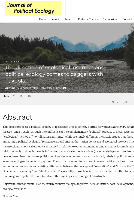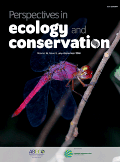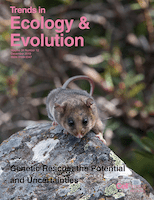
AMBIO
Scope & Guideline
Illuminating pathways to a healthier planet through rigorous scholarship.
Introduction
Aims and Scopes
- Interdisciplinary Research:
AMBIO publishes studies that integrate various disciplines such as ecology, sociology, economics, and environmental science to address complex sustainability challenges. - Socio-Ecological Systems:
The journal focuses on the interactions between human societies and ecological systems, promoting research that examines how these systems can be managed sustainably. - Policy Development:
AMBIO emphasizes the role of research in informing policy decisions related to environmental conservation, climate change, and resource management. - Indigenous Knowledge and Rights:
The journal highlights the significance of Indigenous perspectives and traditional ecological knowledge in environmental governance and sustainability practices. - Climate Change and Adaptation:
Research on climate change impacts, mitigation strategies, and adaptive management practices is a core focus, reflecting the urgent need to address global environmental challenges. - Biodiversity Conservation:
AMBIO addresses biodiversity issues, exploring conservation strategies and the socio-economic dynamics that affect species and habitats. - Nature-Based Solutions:
The journal promotes the exploration of nature-based solutions for environmental problems, emphasizing their potential in managing ecosystems and mitigating climate impacts.
Trending and Emerging
- Community Engagement and Local Knowledge:
A rising emphasis on community-based approaches and the integration of local knowledge into environmental management reflects a growing recognition of the importance of stakeholder involvement in sustainability initiatives. - Equity and Justice in Environmental Governance:
Research exploring the intersection of social justice and environmental policy is gaining traction, highlighting the need for equitable solutions that address disparities in resource access and environmental impacts. - Impact of Climate Change on Vulnerable Populations:
There is an increasing focus on how climate change disproportionately affects marginalized communities, driving research that seeks to understand and mitigate these impacts. - Nature-Based Solutions for Urban Resilience:
An emerging trend is the exploration of nature-based solutions specifically aimed at enhancing urban resilience, reflecting a response to the challenges posed by urbanization and climate change. - Transdisciplinary Approaches to Sustainability:
The journal is seeing a trend towards transdisciplinary research that not only involves multiple academic disciplines but also engages practitioners and policymakers in the research process. - Innovative Governance Models:
Research on new governance frameworks that promote adaptive management, stakeholder participation, and collaborative decision-making is increasingly prevalent, reflecting the evolving nature of environmental governance.
Declining or Waning
- Traditional Environmental Management Approaches:
There seems to be a shift away from conventional methods of environmental management that do not incorporate socio-ecological perspectives, as the journal increasingly highlights integrated and participatory approaches. - Purely Scientific Studies without Social Context:
Studies that solely focus on ecological data without addressing the social dimensions of environmental issues are becoming less frequent, indicating a preference for research that combines both ecological and human factors. - Linear Models of Ecosystem Dynamics:
The reliance on linear models to understand ecosystem dynamics is waning, as more complex, adaptive management frameworks are favored in recent publications. - Narrowly Focused Case Studies:
There is a noticeable decrease in narrowly focused case studies that do not connect to broader sustainability themes or policy implications, suggesting a trend towards more comprehensive analyses. - Single-discipline Research:
Research that is strictly confined to one discipline, without interdisciplinary collaboration, is less common, reflecting the journal's commitment to integrative and holistic research approaches.
Similar Journals

Novos Cadernos NAEA
Advancing knowledge in social sciences and environmental studies.Novos Cadernos NAEA is a prominent open-access journal published by Universidade Federal do Pará, dedicated to advancing the field of applied social sciences and environmental studies. Since its inception in 1998, this journal has established itself as a vital platform for researchers and practitioners to disseminate innovative research, engage in scholarly conversations, and promote interdisciplinary approaches to contemporary issues affecting society and the environment. With an ISSN of 1516-6481 and an E-ISSN of 2179-7536, it aims to enhance accessibility to knowledge by ensuring that all articles are freely available online, thereby supporting the global academic community. The journal's commitment to quality research is evident, making it an essential resource for scholars, students, and policymakers looking for cutting-edge analysis and insights in their fields.

Journal of Political Ecology
Advancing Interdisciplinary Scholarship on Ecological IssuesJournal of Political Ecology is a prestigious, open-access publication that has been at the forefront of interdisciplinary scholarship since 1994, hosted by UNIV ARIZONA LIBRARIES in the United States. This journal, identifiable by its ISSN 1073-0451, focuses on critical analyses of environmental issues as they intersect with social and political factors, making it an essential resource for researchers in the fields of Political Science, Geography, and Ecology. As of 2023, it boasts impressive rankings including Q1 in Geography, Planning and Development and Political Science and International Relations, highlighting its significant impact in these categories. Additionally, the journal ranks in the 86th percentile for Political Science and International Relations, further solidifying its position as a leading publication. The convergence of its content from 2011 to 2024 reflects a commitment to exploring contemporary environmental challenges through a political lens, catering to an audience of academics, practitioners, and students. With its strong reputation and commitment to open access, the Journal of Political Ecology is an invaluable platform for advancing scholarly discourse in an increasingly complex and interconnected world.

Trees Forests and People
Bridging Ecosystems and Communities for a Greener FutureTrees, Forests and People is an esteemed peer-reviewed journal published by Elsevier that commenced its journey in 2020 and focuses on the intricate relationships between trees, forests, and human communities. With its E-ISSN of 2666-7193, this journal serves as a vital platform for presenting cutting-edge research in disciplines such as forestry, environmental science, and management. Recognized for its impact within the academic community, it has achieved a prestigious Q1 ranking in both Economics, Econometrics and Finance (Miscellaneous) and Forestry, alongside a Q2 ranking in Management, Monitoring, Policy and Law as of 2023. Its Scopus rankings indicate robust positioning in various fields, appealing to a diverse audience of researchers, professionals, and policy-makers engaged in sustainable forest management and ecosystem services. By offering open access options, the journal ensures that critical findings are readily available to a global audience, fostering knowledge sharing and collaborative efforts aimed at addressing the pressing challenges in forest conservation and management.

ENVIRONMENTAL REVIEWS
Unveiling Insights for Ecological ProgressENVIRONMENTAL REVIEWS, published by Canadian Science Publishing, is a leading academic journal dedicated to the field of Environmental Science. With an impressive 2023 Q1 ranking in Environmental Science (miscellaneous) and a Scopus rank of #30 out of 233, it reflects the journal's substantial influence and contribution to the discourse on environmental issues. Launched in 1993, this journal provides a platform for critical reviews and innovative research in areas ranging from ecological sustainability to environmental policy, ensuring that it remains at the forefront of scientific inquiry. Although it currently does not offer open access, ENVIRONMENTAL REVIEWS continues to cater to a diverse readership of researchers, professionals, and students, fostering knowledge exchange essential for tackling contemporary environmental challenges. This journal not only strives to disseminate crucial findings but also aims to inspire informed decision-making and practical solutions to promote ecological welfare.

PACIFIC CONSERVATION BIOLOGY
Navigating challenges, preserving the Pacific's natural heritage.PACIFIC CONSERVATION BIOLOGY is an esteemed academic journal published by CSIRO PUBLISHING, dedicated to advancing research in the fields of ecology and nature conservation. With a strong focus on the unique challenges and biodiversity of the Pacific region, this journal serves as a crucial platform for researchers, conservationists, and students alike to disseminate high-quality, impactful findings. Operating from Australia, it has become a significant resource since its inception in 1993, navigating through nearly three decades of vital scholarly communication. Ranked in the Q2 category for both Ecology and Nature and Landscape Conservation as of 2023, PACIFIC CONSERVATION BIOLOGY maintains rigorous standards, as reflected in its successful Scopus rankings. The journal plays a pivotal role in addressing pressing ecological issues and fostering innovative conservation strategies, making it an essential reference for anyone involved in environmental science. Access options for the journal facilitate widespread distribution of knowledge, supporting the mission to promote informed decision-making in conservation practices.

Ecosistemas
Unveiling the dynamics of nature through collaborative study.Ecosistemas is a prominent Open Access journal published by the ASOCIACION ESPANOLA ECOLOGIA TERRESTRE, specializing in the field of ecology. Since its inception in 2001, it has dedicated itself to advancing ecological knowledge and research, fostering an inclusive platform for the dissemination of cutting-edge studies that span ecological interactions, sustainability, and biodiversity. The journal, based in Spain, has established its reputation with notable rankings such as Q3 in the field of Ecology and Q4 in Ecology, Evolution, Behavior, and Systematics, reflecting its commitment to quality research. With a Scopus Ranks position placing it in the 40th and 37th percentiles for its categories, Ecosistemas is integral to the academic community, serving researchers, professionals, and students alike. It provides a vital resource for those seeking to understand ecological dynamics and environmental challenges, facilitating open access to important findings and discussions that shape the future of our ecosystems.

Frontiers in Conservation Science
Exploring Solutions for Our Planet's Conservation ChallengesFrontiers in Conservation Science, published by Frontiers Media SA in Switzerland, is an esteemed open-access journal dedicated to advancing research in the field of conservation science. With an E-ISSN of 2673-611X, this journal aims to facilitate the exchange of knowledge among researchers, professionals, and students by publishing high-quality, peer-reviewed articles that explore innovative solutions to contemporary conservation challenges. Since its establishment in 2020, the journal has rapidly ascended to a Q2 ranking in the Nature and Landscape Conservation category, reflecting its commitment to impactful scholarship, as evidenced by its Scopus rank of #93 out of 211 in Environmental Science and a 56th percentile ranking. By promoting open access, Frontiers in Conservation Science ensures that vital research is widely disseminated, fostering collaboration and informed decision-making in the conservation community. This journal is a crucial platform for those dedicated to understanding and preserving our planet's biodiversity and landscapes.

Perspectives in Ecology and Conservation
Exploring critical perspectives in ecology and environmental management.Perspectives in Ecology and Conservation, published by Elsevier Science Ltd, is a leading academic journal dedicated to advancing the fields of ecology, conservation, and environmental management. With a Q1 ranking in multiple categories, including Ecology, Management, Monitoring, Policy and Law, and Nature and Landscape Conservation, this journal boasts an impressive standing among its peers, making it essential reading for researchers and professionals. Since its inception in 2017 and running through 2024, it aims to provide innovative perspectives and critical analyses that enhance our understanding and practices in conservation science. The journal is accessible through open access options, facilitating broader dissemination of knowledge. Its commitment to addressing contemporary ecological challenges reinforces its importance in the academic community, promoting sustainable practices and informed policy-making in the face of urgent environmental issues.

NEW ZEALAND JOURNAL OF ECOLOGY
Bridging Theory and Practice in Ecological ResearchNEW ZEALAND JOURNAL OF ECOLOGY, published by the New Zealand Ecological Society, stands as a premier platform for disseminating research in the field of ecology, with a notable impact factor reflected in its Q2 ranking in multiple ecology categories for 2023. Established in 1980 and actively publishing since 1982, this journal provides a vital resource for ecologists and environmental scientists, fostering the exchange of innovative ideas and methodologies. The journal covers a wide range of ecological topics, ensuring a comprehensive overview of the current trends and research developments in both ecological theory and practical applications specific to New Zealand and beyond. Researchers, professionals, and students will find in this journal an authoritative source to advance their understanding of ecological dynamics and contribute to the growing field of ecological science. The journal is accessible to the community without open access, providing critical insights that underpin the ecological landscape of New Zealand and inform sustainable practices worldwide.

TRENDS IN ECOLOGY & EVOLUTION
Advancing Knowledge in Ecology and Evolutionary BehaviorTRENDS IN ECOLOGY & EVOLUTION, published by CELL PRESS, is a premier academic journal dedicated to the dynamic fields of ecology, evolution, and behavior. With its ISSN 0169-5347 and E-ISSN 1872-8383, this prestigious journal has consistently contributed to the scientific community since its inception in 1986 and is set to continue its legacy through 2024. Ranked in the top quartile (Q1) of its category in 2023, TRENDS IN ECOLOGY & EVOLUTION holds an extraordinary position, sitting at rank #4 out of 721 in the Scopus database for Agricultural and Biological Sciences, specifically within the Ecology and Evolution sectors, reflecting its high impact and relevance in these critical areas of study. The journal's objective is to provide a platform for reviewing and synthesizing the latest research, trends, and advances, thereby influencing the direction of future scientific inquiries. Although it does not currently offer open access options, its insights are invaluable for researchers, professionals, and students eager to delve into the rapidly evolving understanding of ecological and evolutionary processes.